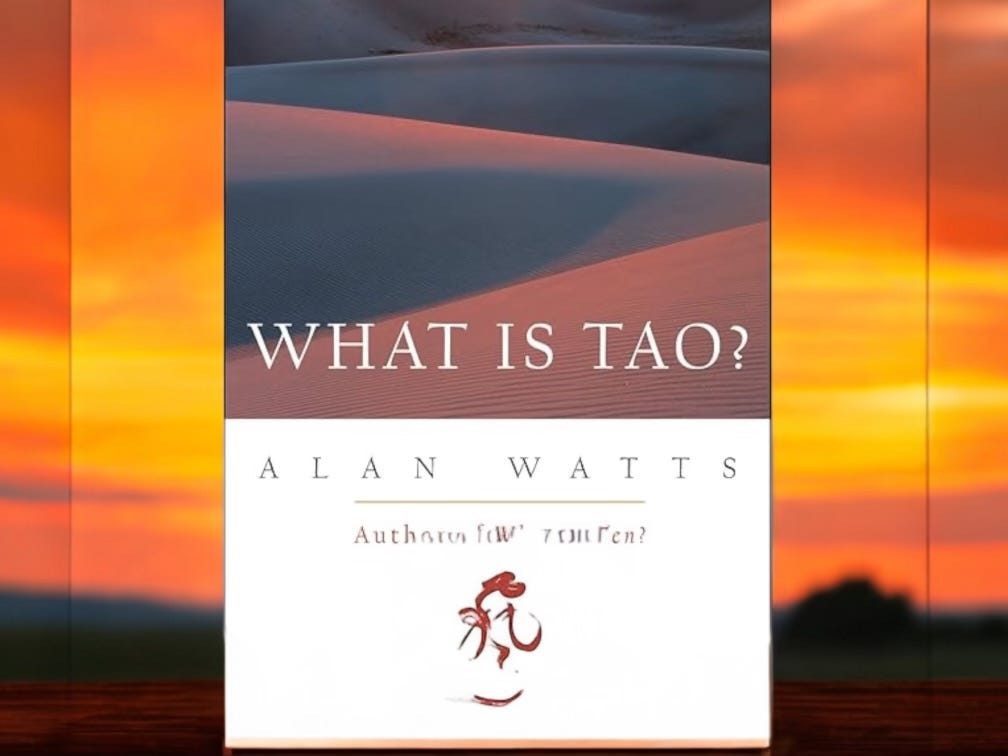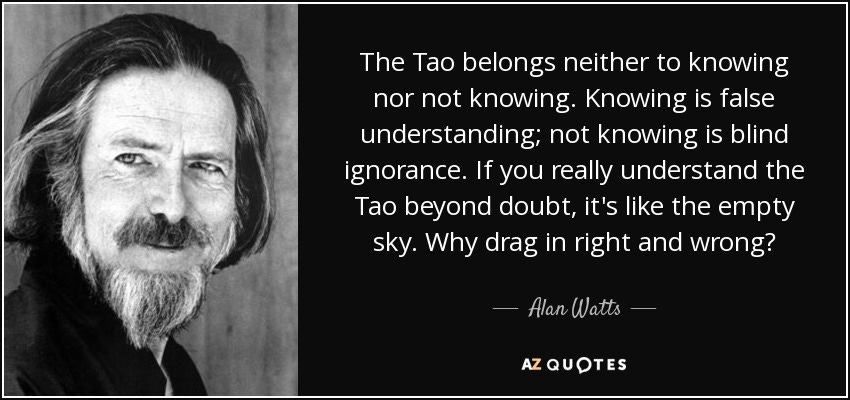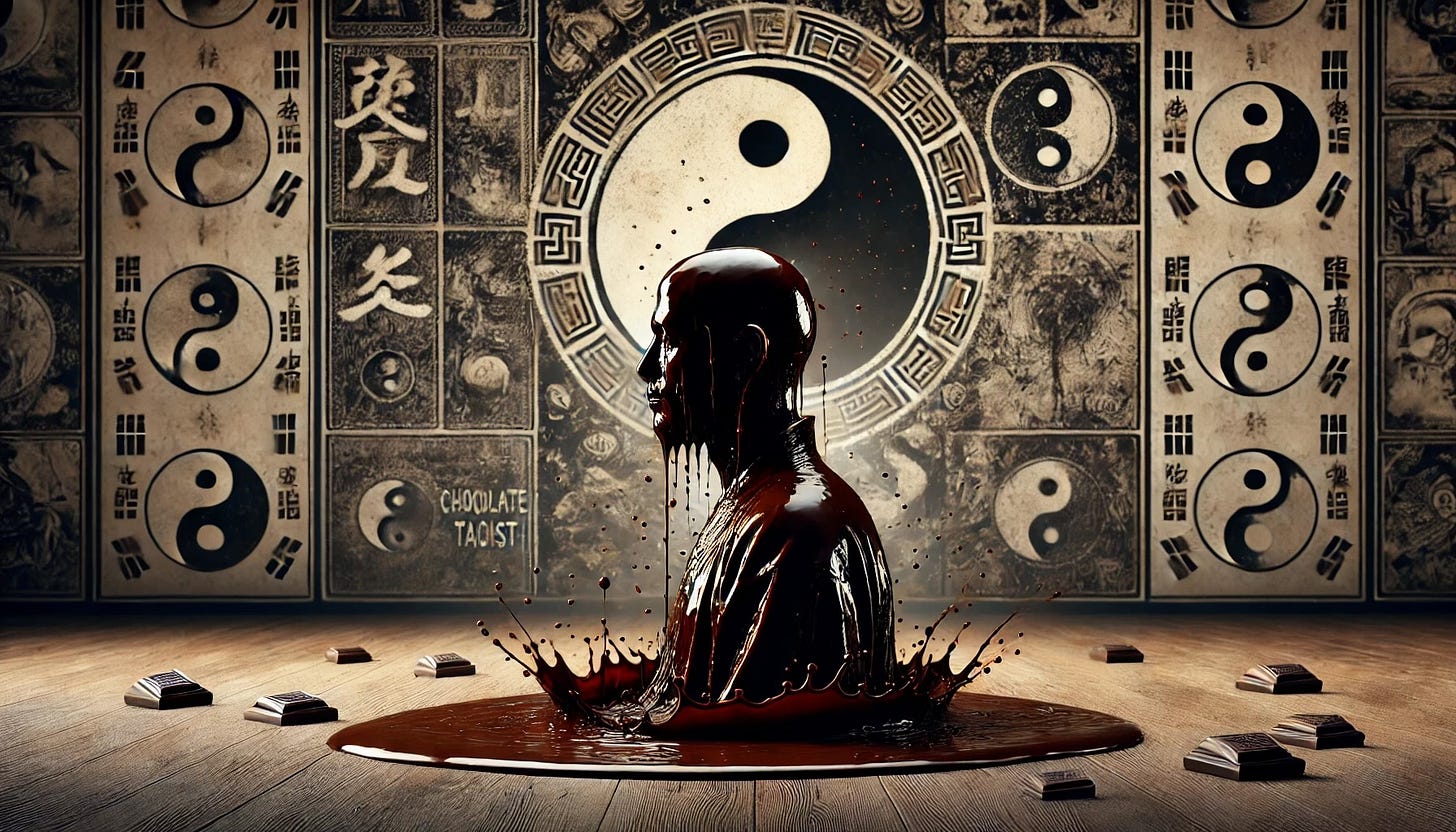Alan Watts, the enigmatic bridge between Eastern and Western thought, graced the world with his deep yet accessible interpretations of Eastern philosophies. Born in England in 1915, Watts’ journey into the world of Taoism began early, marked by his teenage essays for the journal of the Buddhist Lodge in London.
Over four decades, his voice resonated with millions, carried through books, lectures, and media, enriching minds across the globe. Watts' work, spanning over twenty-five books and hundreds of recorded lectures, has crafted a legacy of individuality and self-expression that few philosophers can match. Yet, within this vast oeuvre, his book “What Is Tao" stands as an intriguing entry point for those new to Taoism.
From the outset, "What Is Tao" is a book that captures the essence of Taoism with poetic simplicity. It is a work that could easily be described as an exegesis of the Taoist way, offering readers a gentle introduction to the profound and often paradoxical wisdom that is Taoism.
Alan Watts explains the Tao as the Way, a concept that is both a path and a reflection of one’s true nature. In Watts’ words, everything has its own Tao, an innate way of being that is impossible to pin down with precision. This notion of the Tao as indefinable yet deeply felt runs through the text like a quiet undercurrent, inviting readers to explore the subtle ways in which this philosophy can manifest in their own lives.
As someone who has delved into Taoism for a considerable time, I find that "What Is Tao" serves as an excellent primer for the uninitiated. It offers a basic understanding of Taoism, tracing its evolution from the shamanic roots of pre-Dynastic China to its expression in the works of Lao-tzu and beyond.
The book’s brevity and clarity make it an easy and quick read, ideal for those who are just beginning to dip their toes into the waters of this ancient philosophy. Watts’ recounting of the meeting between Confucius and Lao-tzu, for instance, illustrates the enigmatic nature of the Tao through the metaphor of the dragon—a creature that defies the constraints of earthbound existence, embodying the transcendent qualities of the Tao.
However, for those who have walked the path of Taoism for some time, the book may fall short of expectations. While it touches upon the core ideas of Taoism—such as the art of non-interference, the wisdom of living in harmony with nature, and the importance of getting out of one’s own way—it often seems to only scratch the surface.
The depth and substance that one might crave are somewhat elusive in this work, leaving a seasoned Taoist reader yearning for more. In this regard, "What Is Tao" can feel like a beautifully adorned doorway that opens to a vast and intricate world, but one that leaves much of that world unexplored.
The passages from the book resonate with the simple, unforced beauty that characterizes Taoist thought. Watts speaks of the wisdom of not interfering with the course of life, of learning to paddle with the current rather than against it, and of the profound delight that comes from setting aside the urge to uncover every mystery.
These reflections capture the essence of Taoism in a way that is both accessible and evocative. Yet, as a reader who has delved into the depths of Taoism, I found myself wishing for more of the intricate philosophical explorations that Watts is capable of offering.
Ultimately, "What Is Tao" is a book that will resonate differently depending on where you are on your Taoist journey. For the neophyte, it is a gentle and inviting introduction, a book that can spark curiosity and open the door to a new way of seeing the world.
For the seasoned Taoist, it may serve as a reminder of the simple truths that lie at the heart of the philosophy, even if it doesn’t provide the deeper dive one might hope for. Alan Watts, in his characteristic style, offers us a glimpse of the Tao—a glimpse that, while fleeting, is nevertheless beautiful in its simplicity.
Since 2022, The Chocolate Taoist has delivered uncommon nomadic wisdom to help you live a more interconnected and expansive life.
If this publication has been a source of wisdom for you then please consider helping me sustain it by becoming a monthly or annual contributor.
For just $6.00/month or $60.00/year, you’ll have the opportunity to share your lived experiences with fellow nomads, fueling fiery discussions that provoke, inspire, and challenge you to think differently.
So I hope you will take the plunge today and contribute to my mission of helping human travelers on this life journey.
Onward and Forward
Diamond Michael Scott aka The Chocolate Taoist




